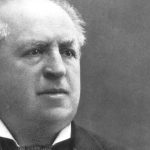
Over here people want the church to flow out into society, while over there they want the church revamped in line with Rome, and over yonder they want to make the church expand into the free church of our time.
The one cries out: ?Away with the church, as institution or organization! Christian living must continue only as an organism.? ?You must increase, I must decrease,? is the humble testimony thought fitting for the church to bring to society. Flowing out into the state must be the goal of Christianity, and therefore if one day the state takes to its own bosom what initially the church alone provided, that church will inevitably cease.
?But no, we want nothing of that super-spirituality that dissipates everything!? cries another voice. ?Jesus? church must become for us not an organism, but preeminently an organization, above all an institution.? Therefore Rome?s model is being investigated once again, to revive not Rome?s abuses but Rome?s church. For one of two things must be true: either let it become once again a church that does not rest in the human race but is laid firmly and immovably upon the human race, or what you wanted to stamp with the name of church is unworthy of that sacred name.
A third group, finally, just as vigorously opposed to spiritual mingling as it is afraid of petrification, adjures us that, without surrendering either the church as an organism or the church as an institution, we must unite them both in the free church.
The free church! Free, for the stream of Christian living must be able to flow unhindered, but let it continue to be church, for the stream will dissipate across the flat plains if its banks are demolished. ?A free church??there you see what can solve the riddle for us, for we must be free in order to escape Rome?s paralysis, but no less must we be church in order to escape the draining away of our lifeblood as a result of spiritualism.
If Scripture is to be our touchstone here, and is to guide us in evaluating these voices, then it appears to me indubitable that only the last opinion is endorsed by Scripture. The first two perspectives that I outlined maintain the church either exclusively as an organism or exclusively as an institution. If either is the case, then the passage from the epistle to the Ephesians argues sufficiently against both pursuits, and argues for a free church that neither surrenders the organism of the church nor destroys the church as an institution.
?Rooted and grounded,? says the apostle, and thereby declares with equal brevity and succinctness that twofold requirement, that double character trait of the Christian life. Rooted?that is the description of organic life; but also grounded?that is the requirement of the institution.
?Rooted? is the metaphor describing the free life that arises not through human artistry but immediately from the hand of the Creator, bearing in its own core the power of life and in its own seed the law of its life. You will find that metaphor earlier, in terms of the tree with spreading branches that grew from a mustard seed. It captures the spirit of what is termed ?growing together into one plant,? describing the bond that unites people with Christ. He is the vine, we are the branches, withering if we are separated from him but bearing fruit if we abide in him?this describes everything that lives organically, and does so with metaphors drawn from growing plants. Similarly, the yeast in those measures of meal points us to a fermentation process that operates spontaneously. Surpassing every other figure, we have the metaphor of the body that Scripture prefers to use for the church: an image that requires organic life, a figure that binds the parts together by means of a power operating invisibly, one that refers to a natural growth occurring not through something added but through a force that comes to outward expression from the inside.
Rooted, to be sure, but also ?grounded,? for alongside that theme of fermentation and vital growth, another series of entirely different metaphors runs through Scripture, drawn not from nature but from the work of human hands. In that series, the metaphor of the church that we are given most frequently is not the growing body but the constructed house; a house consecrated by the Lord?s Spirit to be his temple, and later expanding to the dimensions of an entire city, whose name will express its nature: ?Jerusalem that brings peace.? The church not only grows, but is also built. This explains that repeated emphasis on the single basis, that repeated reference to the foundation on which the house must rest. Buttressed by its pillars, fastened together in its security, that house is held together by its outermost cornerstone. It rises upward, the builders rejoice, and the goal of everyone?s effort is that the house may be established.
?Rooted and grounded? unites organism and institution, and where Scripture itself refuses to allow any separation, it weaves them together. By means of the person who sows and plants, the metaphor of vital growth overflows into that of the institution; by means of the living stone, the metaphor of the building flows over into that of the organism. The church of the Lord is one loaf, dough that rises according to its nature but nevertheless is kneaded with human hands and baked like bread. The church is called a multitude of priests, legitimated through birth but consecrated only through anointing. A bride brought forth by the Father but accepted by choice. A people, finally, who indeed sprouted from the living trunk but nevertheless are organized with wisdom and guided with self-motivation.
That the text connects the two is not accidental but normative. Every viewpoint departs from Scripture that either dissolves the connection between both foundational themes, or while closely adhering to the one, erases the other. Every understanding of the church is to be considered mistaken that prevents the conjunction of these two or disparages one of these two.
* * *
Adapted from Abraham Kuyper?s Rooted & Grounded: The Church as Organism and Institution. Get the whole message free as part of the three-volume Excerpts from the Abraham Kuyper Collected Works in Public Theology.
For more from Abraham Kuyper, order his Collected Works in Public Theology today!





